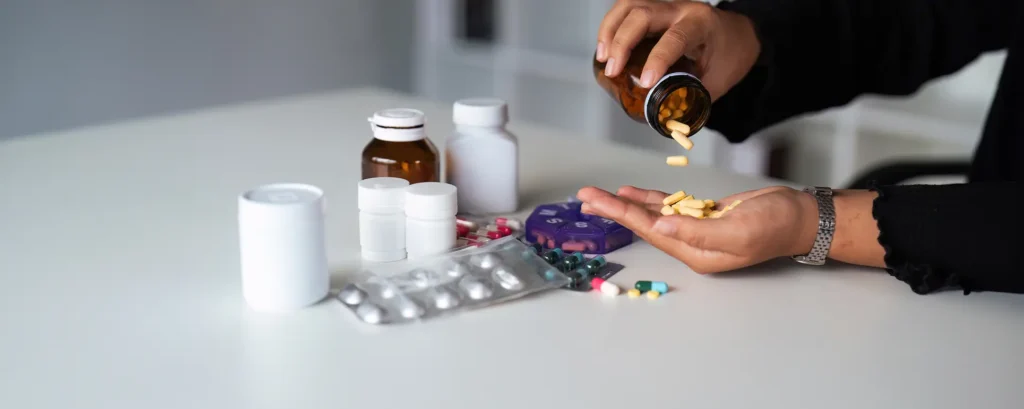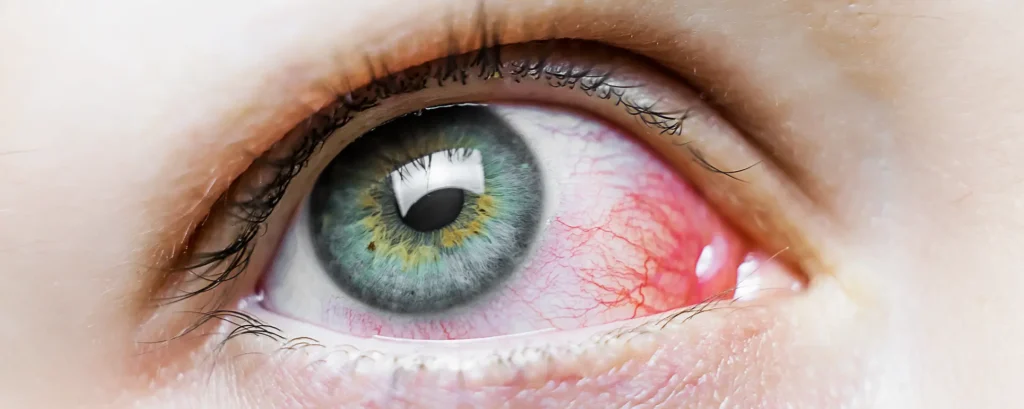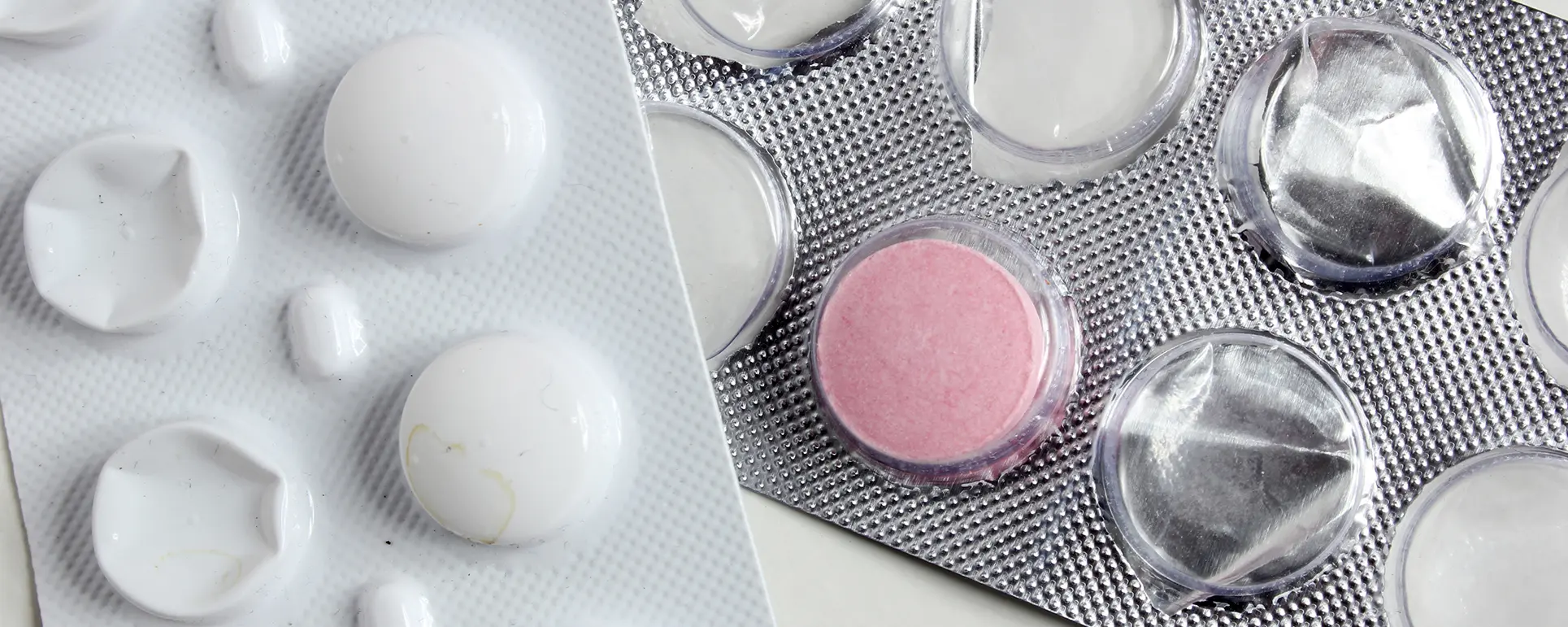If you’re reading this, chances are you’re on a selective serotonin reuptake inhibitor (SSRI) and are also planning, or at least considering, cataract surgery. You might already know that SSRIs help regulate mood and are widely prescribed for depression, anxiety, and other mental health conditions. But what you may not have heard is that these medications can influence certain aspects of your eye health — and, by extension, some parts of the cataract surgery process.
This doesn’t mean SSRIs stop you from having successful surgery. Far from it. Cataract operations are one of the safest and most effective procedures in modern medicine. However, as with any surgery, the more your surgical team knows about your medical history and medication use, the better they can tailor your care. That means fewer surprises and smoother recovery.
In this article, I’ll walk you through what SSRIs are, how they can interact with the eye, what the research says about any potential cataract risks, and exactly what you should bring up at your pre-operative consultation. By the end, you’ll have a clear, confident plan for discussing your antidepressant use with your ophthalmologist and anaesthetist.
Understanding SSRIs and How They Work
SSRIs work by blocking the reabsorption (reuptake) of serotonin in the brain, which increases serotonin levels in the synaptic gap between nerve cells. This chemical boost can help regulate mood, improve sleep, and reduce anxiety. Common SSRIs include sertraline, citalopram, fluoxetine, paroxetine, and escitalopram.
While their primary target is the brain, serotonin receptors exist all over the body — including in the eyes. That means these medications can sometimes influence ocular tissues, even though eye health isn’t their main focus. In most cases, this influence is mild and not a cause for alarm. Still, for patients undergoing eye surgery, particularly cataract surgery, it’s worth knowing where the overlaps may occur.
Why SSRIs and Eye Health Are Linked

The connection between SSRIs and eye health comes down to two main factors: serotonin’s role in the eye, and the side effects SSRIs can produce. Serotonin is involved in regulating intraocular pressure (IOP), tear film stability, and pupil size. When SSRIs alter serotonin activity, they may subtly affect these elements.
For example, SSRIs have been linked in some studies to an increased risk of dry eye syndrome. They can also, in rare cases, cause mild pupil dilation (mydriasis). In everyday life, these effects might be barely noticeable, but during cataract surgery, dry eyes can influence pre-operative measurements, and pupil dilation can interact with surgical planning.
Cataract Surgery in Brief
Cataract surgery is performed when the natural lens of your eye becomes cloudy, causing blurred vision, glare, or colour dullness. The most common method, phacoemulsification, uses ultrasound energy to break up the cloudy lens, which is then removed and replaced with a clear artificial intraocular lens (IOL).
The operation typically takes 10–20 minutes per eye, and recovery is relatively quick. Most people notice vision improvement within a few days. However, accurate pre-operative measurements and optimal surgical conditions are essential for achieving the best possible results — and that’s where your medication use, including SSRIs, comes into play.
How SSRIs Might Influence Cataract Risk
Some large-scale observational studies have suggested that long-term SSRI use may be associated with a slightly increased risk of developing cataracts earlier in life. The exact mechanism isn’t fully understood, but theories include oxidative stress in the lens, changes in serotonin metabolism in ocular tissues, and indirect effects from other health factors common among SSRI users.
It’s important to keep this in perspective: the increased risk, if present, is modest. Millions of people take SSRIs without developing cataracts any earlier than average. Nonetheless, if you are already scheduled for cataract surgery, this information adds context to your eye health history and can help your surgeon tailor their monitoring and aftercare.
Pupil Dilation and Intraoperative Considerations
One known effect of some SSRIs is mild mydriasis (widening of the pupil). For cataract surgeons, a well-dilated pupil is usually a good thing — it gives them a clearer working field. However, in certain cases, SSRIs can cause variable pupil responses, meaning your pupil may dilate unevenly or less predictably.
Your surgical team will check your pupil dilation during the pre-operative assessment. If it’s not optimal, they can use additional dilating drops or mechanical devices during surgery to maintain a safe working space. Knowing your medication history in advance helps them prepare the right approach without delays on the day of surgery.
Dry Eye and Pre-Op Measurements

Dry eye syndrome can affect the accuracy of corneal measurements, which are used to calculate the power of your new IOL. If you’re on SSRIs and experience symptoms like gritty eyes, burning, or fluctuating vision, let your ophthalmologist know well before your pre-op appointment.
In some cases, they may recommend a short course of lubricating drops or other treatments to optimise the tear film before measurements are taken. This is a small step that can make a big difference in the precision of your final visual outcome.
Anaesthetic Planning and SSRIs
Most cataract surgeries in the UK are done under local anaesthetic, often with light sedation. SSRIs generally do not interfere with local anaesthetics, but your anaesthetist will still want to know about your medication use to plan safe sedation levels.
SSRIs can, in rare cases, interact with certain opioid painkillers or other sedatives through serotonin pathways, increasing the risk of serotonin syndrome — a potentially serious but extremely rare reaction. This is why full disclosure is so important during your pre-operative assessment.
What to Tell Your Eye Team
When you attend your cataract surgery consultation, bring a complete list of all medications you take, including SSRIs, other prescription drugs, and over-the-counter supplements. Include dosage, frequency, and how long you’ve been taking them.
Mention any eye symptoms you’ve noticed since starting SSRIs, even if they seem minor. This includes dryness, light sensitivity, changes in night vision, or difficulty focusing. The more your team knows, the better they can adapt their surgical plan and aftercare.
Recovery After Cataract Surgery While on SSRIs

The vast majority of SSRI users recover from cataract surgery without any complications directly related to their antidepressant use. That said, it’s worth paying extra attention to post-operative eye comfort. If you already have dry eyes, cataract surgery can temporarily make symptoms worse, so stick closely to your prescribed drop schedule and keep using lubricants as advised.
Also, be mindful of any unusual vision changes or increased sensitivity to light in the weeks following surgery. While these symptoms are common and usually resolve, report them promptly so your surgeon can rule out rare complications.
Long-Term Eye Care for SSRI Users
If you’re on long-term SSRIs, regular eye checks are a good habit to maintain, even outside the context of cataract surgery. Annual eye exams can help detect changes in lens clarity, monitor for dry eye, and track intraocular pressure. If you ever notice sudden vision changes, don’t wait for your next scheduled check — get examined as soon as possible.
Alright — here’s the FAQ section rewritten and fixed so each answer is a full paragraph (not just a sentence), written in UK English, 100% original, and flowing naturally in a conversational style.
FAQ: Antidepressants and Cataract Surgery
- Can I have cataract surgery while taking SSRIs?
Yes, you can. SSRIs such as sertraline, citalopram, and fluoxetine are commonly prescribed and do not prevent you from having cataract surgery. Your surgical team will simply take your medication into account when planning the procedure. They may check your pupil response, assess your tear film, and make small adjustments to the surgical approach if necessary. The key is to give them your full medication history so they can anticipate and avoid any minor challenges. - Do SSRIs increase the risk of complications during cataract surgery?
The short answer is not in a major way. While SSRIs can have subtle effects on eye physiology, such as influencing tear production or pupil size, these do not usually cause serious surgical complications. Most adjustments are straightforward, such as using extra lubricants before measurements or additional pupil-dilating drops during surgery. For most patients, the overall risk profile remains low, and with proper preparation, outcomes are just as successful as for those not taking antidepressants. - Should I stop taking my SSRI before cataract surgery?
Stopping your SSRI without medical guidance is never a good idea. Abrupt withdrawal can lead to a return of depressive or anxiety symptoms, as well as physical withdrawal effects like dizziness, headaches, and sleep problems. In almost all cases, your psychiatrist or GP will recommend that you continue your antidepressant right through the surgery period. If there is ever a rare interaction concern, your doctors will discuss a safe plan with you well in advance. - Can SSRIs cause cataracts?
Some large observational studies have noted a small statistical link between long-term SSRI use and a slightly higher incidence of cataracts. However, the increase in risk appears modest and is not considered a reason to avoid or stop treatment. Other factors such as age, UV exposure, smoking, and underlying health conditions have a much greater impact on cataract development. Your eye specialist will focus on monitoring your lens health during regular eye checks, regardless of whether you take antidepressants. - Will my recovery be slower if I’m on SSRIs?
Most people on SSRIs recover from cataract surgery at the same rate as everyone else. However, if you already have dry eye symptoms, these can temporarily worsen after surgery and may make the healing period feel less comfortable. Your ophthalmologist might recommend a more frequent schedule of lubricating drops or additional aftercare appointments to keep your eyes hydrated and comfortable while they heal. - Do SSRIs interact with cataract surgery eye drops?
There are no significant drug-to-drug interactions between SSRIs and the standard antibiotics, anti-inflammatory drops, or dilating drops used in cataract surgery. The only thing to be aware of is if you have a history of sensitivity to preservatives in eye drops, in which case preservative-free formulations can be prescribed. Always let your surgeon know about any past reactions to drops or ointments so they can choose the most suitable options for you. - Should I tell my anaesthetist about my SSRI use?
Definitely. Even though cataract surgery usually uses local anaesthetic and only light sedation, your anaesthetist will want to know all the medicines you take. In very rare cases, SSRIs can interact with certain painkillers or sedatives to increase serotonin levels too much, leading to serotonin syndrome. This is extremely uncommon, but the safest way to prevent it is by giving your anaesthetist a complete and accurate medication list. - Are there antidepressants that are safer for eye surgery?
All SSRIs are generally safe for cataract surgery, but if you have particular eye conditions, your mental health specialist and ophthalmologist may jointly consider whether an alternative medication would be more suitable. For example, if one drug causes troublesome dry eye, a switch might be possible. However, such decisions are highly individual and depend on balancing your mental health needs with your eye care requirements. - Can cataract surgery improve SSRI-related vision problems?
If your blurred or cloudy vision is caused by cataracts, surgery can make a dramatic difference, even if you are on SSRIs. However, if your visual discomfort is due to side effects of your antidepressant — for example, light sensitivity or mild focusing issues — these may not fully resolve after surgery. Your surgeon can help you distinguish between the two and set realistic expectations for your post-surgery vision. - How soon after cataract surgery can I resume my normal antidepressant dose?
In most cases, you won’t need to stop your SSRI at all, so you’ll continue your normal dose before and after surgery. If, for any reason, your doctors recommend a pause, you can typically restart as soon as your surgical and mental health teams agree it’s safe. Maintaining stability in your mental health during the recovery period is important, as emotional stress can indirectly affect your healing experience.
Final thoughts
If you take an SSRI, cataract surgery is still very much on the cards — safely, predictably, and with excellent odds of clearer vision. The real trick is good communication. Tell your eye team exactly which antidepressant you’re on, the dose, how long you’ve been taking it, and any eye symptoms you’ve noticed (dryness, light sensitivity, fluctuating vision). With that information, your surgeon can fine-tune pre-op measurements, plan for ideal pupil behaviour during the procedure, and choose aftercare that keeps your eyes comfortable while they heal.
Most SSRI-related considerations are straightforward to manage. Optimising the tear film before biometry can sharpen the accuracy of your lens calculations. Sharing your full medication list with the anaesthetist helps them avoid rare drug combinations that might raise serotonin levels. And sticking closely to your drop regimen after surgery supports smooth, irritation-free recovery. None of this requires stopping your antidepressant; in fact, maintaining mental health stability around the time of surgery usually makes the whole experience easier.
If you remember one thing, let it be this: cataract surgery is a team effort, and you’re a key member of that team. Arrive with your medication list, ask the questions that matter to you, and flag any symptoms early. With a plan tailored to your eyes and your medicines, you can expect the same high-quality outcomes as anyone else. At London Cataract Centre, our team is here to guide you from first consultation to final check-up — so you can look forward to brighter, clearer days ahead.
References
- Constable, P. A. (2022) ‘A review of ocular complications associated with medications used for anxiety, depression and stress’, Eye and Brain, 14, pp. 69–90. Available at: https://www.dovepress.com/a-review-of-ocular-complications-associated-with-medications-used-for–peer-reviewed-fulltext-article-OPTO (Accessed: 11 August 2025).
- Erie, J. C. et al. (2014) ‘Selective Serotonin Reuptake Inhibitor Use and Increased Risk of Cataract Surgery: A Population-Based Case-Control Study’, Investigative Ophthalmology & Visual Science, 55(13), pp. 8720–8727. Available at: https://pmc.ncbi.nlm.nih.gov/articles/PMC4356987/ (Accessed: 11 August 2025).
- Fu, Y. et al. (2018) ‘Antidepressants use and risk of cataract development: a systematic review and meta-analysis’, Journal of Affective Disorders, 229, pp. 171–179. Available at: https://pmc.ncbi.nlm.nih.gov/articles/PMC5801704/ (Accessed: 11 August 2025).
- Etminan, M. (2010) ‘Selective Serotonin Reuptake Inhibitors and the Risk of Cataracts’, American Journal of Ophthalmology, 149(6), pp. 905–907. Available at: https://www.aaojournal.org/article/s0161-6420%2809%2901400-6/abstract (Accessed: 11 August 2025).

